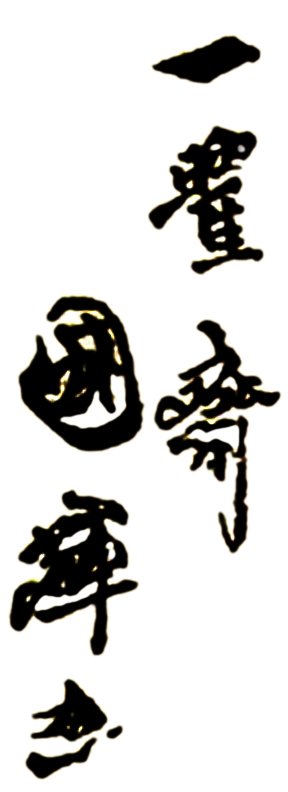| |
KUNITERU-II(Utagawa Kuniteru-II, Kunitsuna-II)(1830–1874)Biography Signature of Utagawa KUNITERU-II (Ichiusai Kuniteru-ga) |
|
Artist – Utagawa
KUNITERU-II (二代目歌川国輝) (1830 – Dec. 15th 1874) was an ukiyoe-artist
from the end of the Edo period to the beginning
of the Meiji period. He was at first apprenticed at KUNISADA
(Utagawa Toyokuni-III) and used Utagawa KUNIMITSU-II (二代国光)
as his ga. Around Bunkyo period
he used KUNITSUNA-II to sign his woodblocks. About 1865 he
changed his ga to KUNITERU 国輝). He
painted modernization paintings such as "Twelve
Views of Tokyo," a collaboration with Utagawa
Kunimasa IV, "Pictures of Famous Places in Tokyo",
and "Famous Places in Tokyo". He also painted a
considerable number of railway paintings, such as
"Tokyo Shiodome Railway Steam Car Passing", and his
depictions of steam locomotives were more
meticulously observed and drawn than those of other
artists. His works depicting the scenes of
modernization from the end of the Edo period to the
early Meiji period are noteworthy as documents.
During his time as KUNITSUNA (国綱) he was active in caricatures, road scenes, and actor paintings. In 1873 , the Ministry of Education published 104 nishiki-e prints for educational purposes, bearing a red seal stating "Published by the Ministry of Education Bookbinding Factory" of which 30 were attributed to "Yosai Kuniteru" (曜斎国輝).
KUNITERU-II (1830~1874) is often confused with his master KUNITERU-I (1808-1876), who was 22 years older than him. As is often the case, KUNITERU-II often used the same artist names as the master.
Personal life - There is only sparse information on KUNITERU available. Utagawa KUNITERU-II was born as YAMADA Kunijiro in Fukagawa Mikuramae-cho. He died at the age of 45. His grave is at Horenji Temple in Kameido, Koto Ward, Tokyo, and his posthumous Buddhist name is Endaido Shinji. His descendants live on to this day in Hagi Oda.
Aliases - KUNITERU-II's birth name was YAMADA Kunijiro (山田国次郎). Besides KUNITERU (国 輝), KUNIMITSU-II (二代国光), KUNITSUNA (国綱), KUNITSUNA-II (二代国綱; the same as KUNITERU-I), and SADASHIGE (貞重; also the same as KUNITERU-I). He used the pen name epithets Ichiyusai (一雄斎), Ichiyosai ( 一曜斎), and Yosai (曜斎).
Disciples - Noteworthy was his disciple Utagawa KUNITERU-III (三代歌川 国輝; active ca. 1886-1895); also known as Toyohara Kunichika (豊原国輝)
During his time as KUNITSUNA (国綱) he was active in caricatures, road scenes, and actor paintings. In 1873 , the Ministry of Education published 104 nishiki-e prints for educational purposes, bearing a red seal stating "Published by the Ministry of Education Bookbinding Factory" of which 30 were attributed to "Yosai Kuniteru" (曜斎国輝).
KUNITERU-II (1830~1874) is often confused with his master KUNITERU-I (1808-1876), who was 22 years older than him. As is often the case, KUNITERU-II often used the same artist names as the master.
Personal life - There is only sparse information on KUNITERU available. Utagawa KUNITERU-II was born as YAMADA Kunijiro in Fukagawa Mikuramae-cho. He died at the age of 45. His grave is at Horenji Temple in Kameido, Koto Ward, Tokyo, and his posthumous Buddhist name is Endaido Shinji. His descendants live on to this day in Hagi Oda.
Aliases - KUNITERU-II's birth name was YAMADA Kunijiro (山田国次郎). Besides KUNITERU (国 輝), KUNIMITSU-II (二代国光), KUNITSUNA (国綱), KUNITSUNA-II (二代国綱; the same as KUNITERU-I), and SADASHIGE (貞重; also the same as KUNITERU-I). He used the pen name epithets Ichiyusai (一雄斎), Ichiyosai ( 一曜斎), and Yosai (曜斎).
Disciples - Noteworthy was his disciple Utagawa KUNITERU-III (三代歌川 国輝; active ca. 1886-1895); also known as Toyohara Kunichika (豊原国輝)
Copyright 2008 ff: Hans P. Boehme